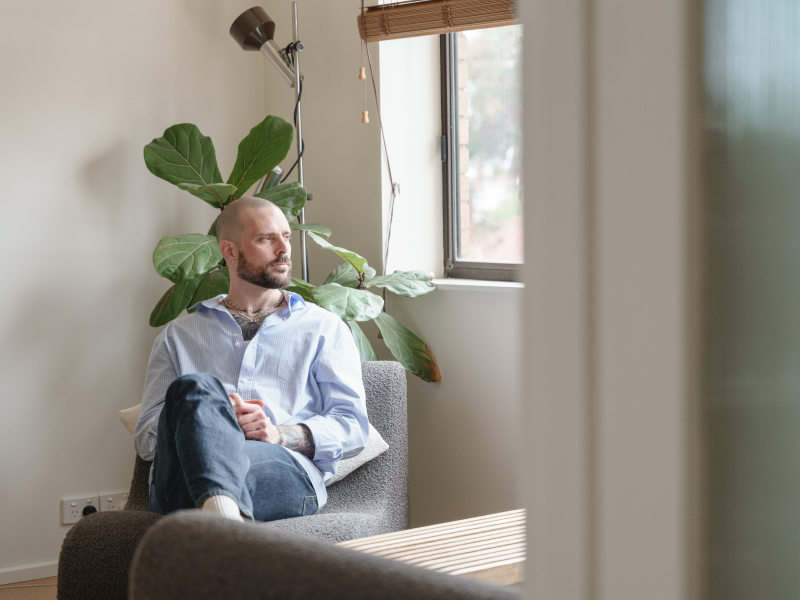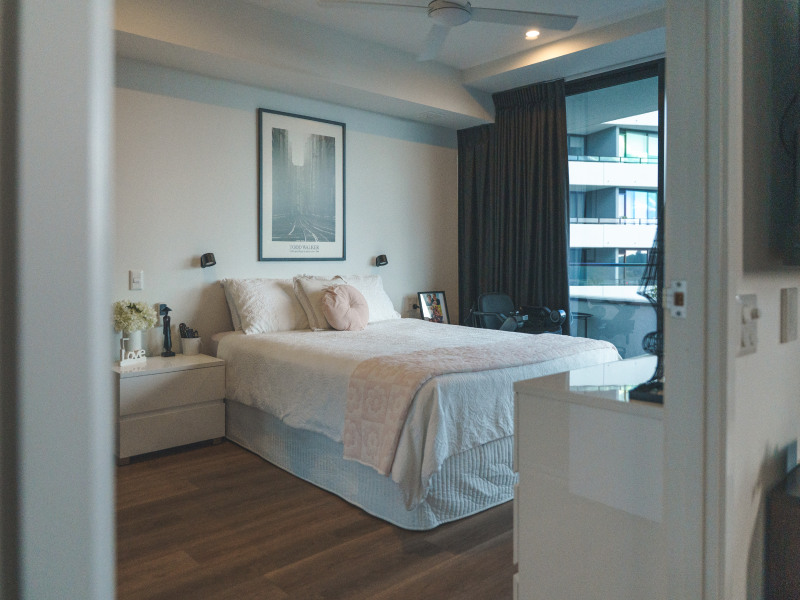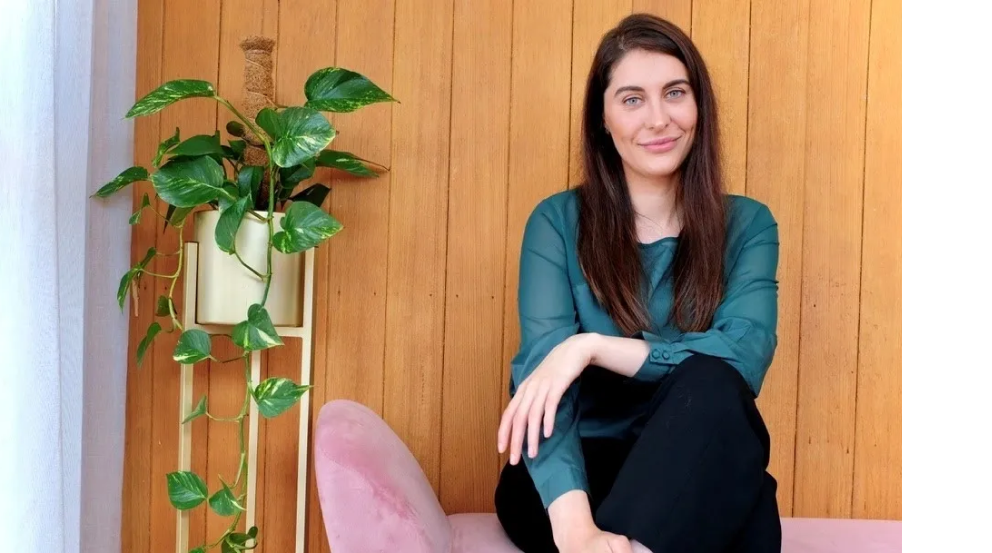With World Mental Health Day around the corner, we sat down with Bank Australia customer, psychologist Carly Dober from Enriching Lives Psychology, to find out how to boost our mental health for free (or close to it).
That said, “free” can be a bit of a stretch. Finding the time, space and energy to care for your mental wellbeing can take real resources, financial or otherwise. Things like proximity to nature, flexible work hours and community spaces aren’t equally available to everyone.
Still, doing just one of the evidence-based tips on this list – when and how you can – can make a real difference. Think small, sustainable habits that can gradually bolster your mental wellbeing over time.
We have to imagine our mental health reserves like a bank account,” Carly says. “So the more stress we're under, the more our reserves get drained. Now imagine that everyday you’re making small deposits into that account. With that energy in the bank, you’re more able to withstand life on life’s terms.”
1. Connect with nature
The connection between time spent in nature and better mental health outcomes has been widely studied, and the results are pretty conclusive: it works. (The reverse is also true.)
“Connection to nature is a cornerstone of good mental health,” Carly says. “Our brains are inherently wired to seek out and enjoy trees, landscapes, green spaces, animals – they all produce a calming effect. It even works while listening to natural sounds, or looking at pictures of nature.”
Of course, access to nature isn’t universal, with urban density, mobility and time constraints all playing a role. If you don’t have easy access to natural spaces, alternatives like tending to plants at home, using nature soundscapes or taking a mindful walk in your neighbourhood can still offer benefits.

2. Start gardening
If you can’t make it to a park or bushland, gardening can bring some of those nature benefits closer to home. Even a windowsill planter, balcony herb garden or tending to indoor plants can offer a small but meaningful mental boost.
“We know therapeutic horticulture works,” Carly says, “but you can also join local gardening clubs, or attend community events, to really amplify the benefits.”
It’s not just about growing things. It’s about grounding yourself in a tactile, mindful, physical activity. “Gardening is great exercise,” Carly adds. “You’re moving your body in nature.You’re touching soil. You’re watching things grow. It’s a very mindful practice.”
Of course, not everyone has the time, space or ability to garden. If that’s the case, it may be worth spending time in community gardens or visiting local markets to engage with the rhythms of the surrounding natural environment.

3. Volunteer and help others
If you have time flexibility, volunteering is strongly associated with improved mental wellbeing. According to the Australian Psychological Association, volunteering has been linked with better life satisfaction, higher self-esteem, and greater levels of happiness.
“Similar to the chemical rush we get when we do something nice for a friend, when we give back and do something for other people, we get a boost of brain-loving chemicals,” Carly says. “There’s also a social effect, where you talk to people who might share your interests and values. And we know socialisation is really helpful. So it's a multi-pronged benefit.”
Volunteering doesn’t have to be formal, either. Helping a neighbour, getting involved in a local group or supporting someone in your network who needs it can all provide similar effects.

4. Practice meditation
Meditation, particularly mindful-based techniques, has been shown to reduce stress, improve emotional regulation, and help with focus. And while meditation is often packaged and sold as an app or a health retreat, the basics are simple and flexible.
“As long as you don’t have complex mental health concerns such as active trauma symptoms or OCD, meditation is an amazing skill to cultivate,” Carly says. “It can reduce our physical markers of stress, like blood pressure and cortisol. And you don’t need to sit down – you can walk and meditate. Or garden. Or swim. It’s just about being mindful; being in contact with the present moment.”

5. Get better sleep
Carly says that if there’s only one easy, free, everyday tip for better mental health, this is it: get better sleep. But this one comes with a caveat: while good-quality sleep is undeniably linked to better mental health, getting it isn’t always straightforward, especially for those with chronic health conditions, neurodivergence, caring responsibilities or disrupted schedules.
If you are in a place where you can work on improving your sleep, Carly says it’s well worth it. “Getting consistent, good-quality sleep is absolutely foundational,” she says. “Everything flows from good sleep. Your mental health, your physical health, your mood, your stress levels. It’s an incredibly important factor.”
According to the Sleep Foundation, most healthy adults need between 7 and 9 hours of good quality, uninterrupted sleep per night, and not getting that can impact your mood and mental wellbeing.
If you’re looking for a place to start, consider ways to improve your sleep hygiene – the routines, behaviours and habits that can help optimise your sleep, like reducing screen time before bed or establishing a pre-bedtime ritual. And be sure to speak with your GP if issues persist.

Disclaimer: The information in this article is intended to be for general use only. For tailored mental health support, contact your doctor.





LiamNeal-04493.webp)


